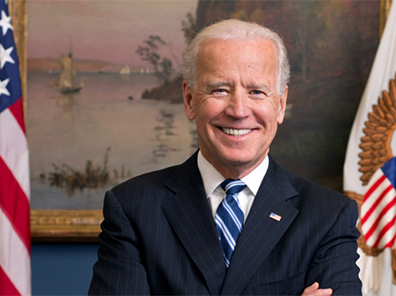
The New York Times is in possession of a Department of Homeland Security (DHS) document that reportedly lays out the Biden administration’s plan to significantly increase legal immigration without congressional action. According to the Times, the 46-page blueprint is titled “D.H.S. Plan to Restore Trust in Our Legal Immigration System”, divided into seven sections, and:
offers detailed policy proposals that would help more foreigners move to the United States, including high-skilled workers, trafficking victims, the families of Americans living abroad, American Indians born in Canada, refugees, asylum-seekers and farm workers. Immigrants who apply online could pay less in fees or even secure a waiver in an attempt to “reduce barriers” to immigration. And regulations would be overhauled to “encourage full participation by immigrants in our civic life.”
Based on the article’s description of some of these policy proposals (the Times did not post the actual DHS document), the Executive Branch does not have the legal authority to implement them absent new legislation. For example, on H-1Bs, the Biden administration wants to “restore opportunities for foreign employees”. It‘s unclear what this means, but Congress set the annual H-1B cap as well as the length of the visa. Additionally, the proposal calls for “revamping” the U visa program, which awards lawful status and a path to citizenship for illegal alien crime victims and their families. Like the H-1B program, Congress has established an annual cap for the number of U visas that may be issued in a given fiscal year. As Jessica Vaughan pointed out, “in practice there are legitimate concerns that the [U visa] program is vulnerable to fraud, improperly promoted by advocates, and exploited as an avenue to obtain legal status.”
The article does not describe the policy proposal for alien farm workers, but, again, Congress has already created a temporary agricultural worker program known as H-2A. Unlike the H-1B program, the H-2A visa program is uncapped.
On the issue of immigration benefits fees, U.S. Citizenship and Immigration Services (USCIS) has already been promoting online filing (where available) for years. And the USCIS fee rule developed during the Trump administration, which is currently enjoined by a federal judge on dubious Administrative Procedure Act (APA) grounds, included a modest fee reduction for those applicants and petitioners who file online if online filing for that form type is available. The Biden political appointees' push for expansive fee waivers runs counter to the agency’s fiscal reality that the agency continues to bleed money as the fee structure currently in place fails to fully recoup the costs of adjudication.
Even in areas where DHS has the authority to make certain changes, the article implies that the Biden administration will not adhere to the regulatory requirements under the APA. The reason? To “avoid the lengthy regulatory process”.
I oversaw the development of regulations during the Trump administration and the rule-making process is laborious, complex, and time-consuming. I can say with certainty that wanting a regulation finished quickly is not a legitimate reason under the APA to bypass the notice and comment process where the public is given an opportunity to chime in and the agency must respond to comments in the final rule.
